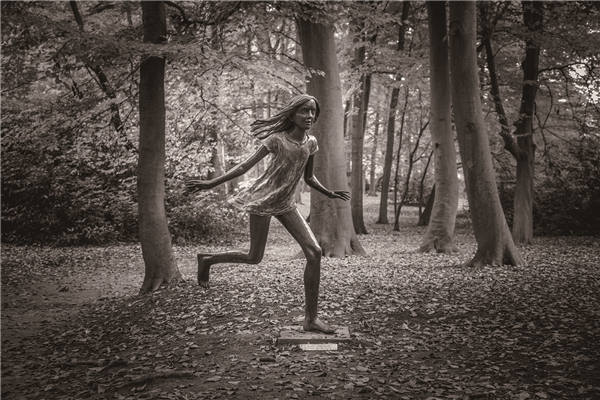 |
|
[Photo by Michele Stanzione/Provided to China Daily] |
Famous sculptures like the Little Mermaid and Mannekin Pis were Stanzione's targets for photos. But some less-known ones or even sculptures without known creators surprised him, too.
In a park in Amsterdam, Stanzione noticed a bronze statue of a man seated on a tree branch with a saw in hand. In the Dutch capital, he also saw a street with a stone sculpture that resembles a human hand touching the chest. In Weimar, Germany, he found a bronze sculpture of a girl running in a forest.
These common sculptures, together with the classical ones made to honor Europe's many philosophers, poets, musicians and writers, have not only become part of the continent's history but also part of the daily lives of residents.
"When I was in my hometown of Aarhus in Denmark, I never paid special notice to our city sculptures. We live with them. They're just part of our lives," says Niels Friis, head of cultural affairs with the Danish embassy in China, after attending the Qingdao exhibition.
Qingdao was a German colony during World War I.
Li Ming, a senior official of the local government, says the photo show of sculptures is just the start of a series of cultural exchanges between Qingdao and Europe.
"Next year, we'll invite more than 10top sculptors from Europe to make sculptures for our city," says Li. "Then, based on our residents' decision, we'll place their favorite sculptures in public spaces."